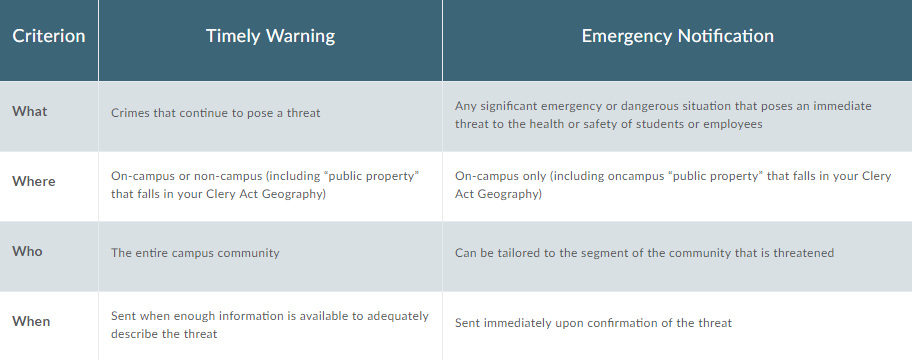Blog
Clery Act: What you need to report and communicate
Clery Act Reporting and Communication
Title XI, more commonly referred to as the Clery Act, has a laundry list of requirements which include reporting and communication of campus crimes and emergencies. A few Universities have been hit with major fines ($2.4 million from a major institution in 2016), penalties and lawsuits (as a result of incomplete reporting, a major university president and head coach were removed from positions in 2014). The consequences listed could have been avoided by providing transparency into the issues the Cleary Act requires universities to report and communicated to the public.
For some clarity on what needs to be reported, here is an excerpt from clerycenter.org: “The Clery Act requires colleges and universities that receive federal funding to disseminate a public annual security report (ASR) to employees and students every October 1st. This ASR must include statistics of campus crime for the preceding 3 calendar years, plus details about efforts taken to improve campus safety.”
“ASRs must also include policy statements regarding (but not limited to) crime reporting, campus facility security and access, law enforcement authority, incidence of alcohol and drug use, and the prevention of/response to sexual assault, domestic or dating violence, and stalking.”
For more info, visit their page.
As for the communication aspect of the act, which is broken down into “Timely Warnings” and “Emergency Notifications”, here is a breakdown of what constitutes either type:



